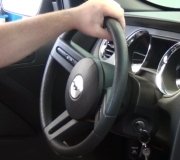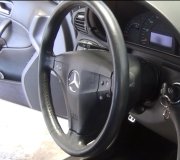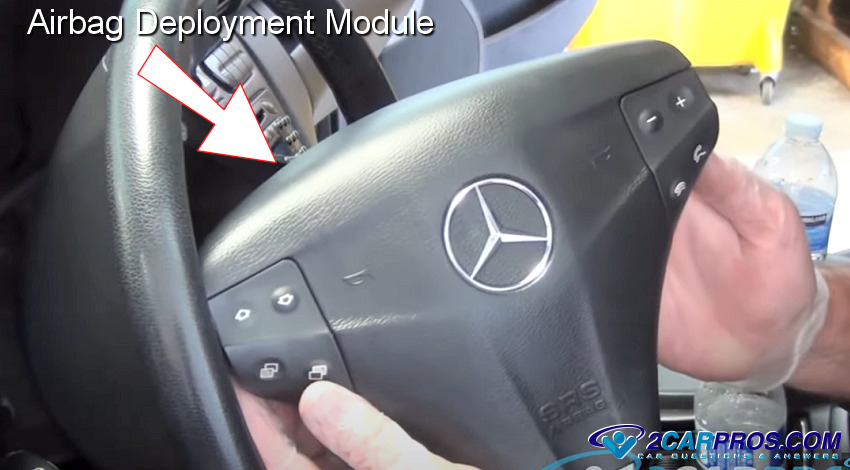There's two common causes of that type of noise, but neither sounds like metal scraping. The first one is the steering shaft makes a rubbing noise where it rubs on the rubber seal at the firewall. That occurs in cold weather, and it usually occurs any time the steering wheel is turned, not just at full turns. It is rare for this to occur on a car this age because it would have been corrected a long time ago. If the grease wore off, I suppose the noise could come back. The repair involves unbolting the plastic cover around the steering shaft, under the dash, just in front of the brake pedal, then you use a hooked tool to pull the rubber seal back so you can spray the grease in. The best grease I found for this comes from the Chrysler dealer's parts department but you can find similar products at hardware stores and auto parts stores. Theirs is "Spray White Lube". It goes on real wet and runny. The liquid soaks into tight places and takes the grease with it. The liquid will evaporate, and it leaves the grease behind. That makes it real good for tight door hinges, but it's the type of grease that makes it good for squeaky rubber seals.
The second common cause of noise is the front upper strut mounts. Most commonly those cause a crunching or popping sound as they bind, then snap free as you turn the steering system. To identify that, reach over the top of a front tire, then lightly wrap your fingertips over part of the coil spring. Have a helper slowly turn the steering wheel side to side. You should feel that spring rotate smoothly with the wheel and tire. If the upper mount is binding, you'll feel the spring wind up and build tension, then suddenly pop free and turn, or you'll feel the roughness in the bearing as the assembly rotates. That should not be related to temperature or road salt.
If you're driving where they throw a pound of salt on an ounce of snow, like they do here in Wisconsin, the slop that creates is a lot more hazardous to drive on than the snow itself, and you know how that stuff clings to our cars. There could be snow and ice building up around the rack and pinion steering gear. Those always have two rubber or plastic accordion boots around the two inner tie rod ends. The ribs on those boots could be catching on ice, and that might only occur when the steering linkage is fully extended one way, meaning you're turning sharp left or right.
The best clue that ice buildup is the problem is if you observe the noise occurring just before you park the car, then, when the temperature goes up high enough for that slop to melt off the car, the noise does not occur the next time you drive it.
Those three things I described can be ignored because they are not safety-related. There are plenty of other causes that are safety-related and should be found with an inspection. For noises, vibrations, and tire wear problems, the best place to go for steering and suspension system inspections is a tire and alignment shop. The people there are experts at finding these things.
Here's a link to an article that sheds more light on noise problems:
https://www.2carpros.com/articles/popping-noise
Tuesday, February 26th, 2019 AT 5:07 PM


